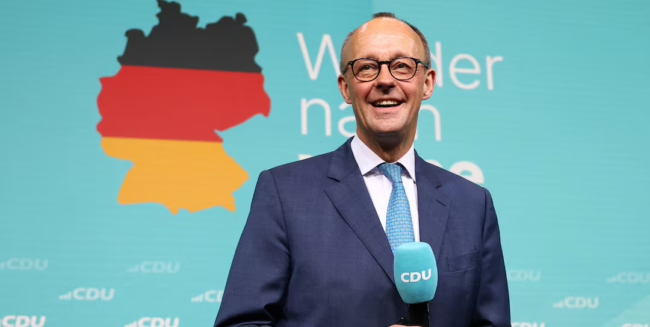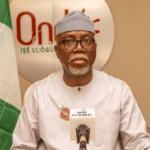The conservative opposition led by Friedrich Merz emerged victorious in Germany’s 2025 election on Sunday, securing a lacklustre victory.
Exit polls and partial vote counts indicated that Merz’s Union bloc secured approximately 28.5% of the votes, while the AfD gained around 20.5%, a significant increase from its 2021 performance. Scholz’s Social Democrats received just over 16%, marking a historic low. The Greens, who were also part of the outgoing coalition, polled at around 12%.
Merz, addressing supporters, stated his intention to form a coalition government by Easter, though the process is expected to be challenging.
“The most important thing is to reestablish a viable government in Germany as quickly as possible,” he said, adding, “I am aware of the responsibility. I am also aware of the scale of the task that now lies ahead of us.”
The election was called seven months early following the collapse of Scholz’s coalition government in November.
In this article, Tribune Online takes a look at some things you should know about the new German chancellor.
1. Early Life and Background
Friedrich Merz was born on 11 November 1955 in Brilon, North Rhine-Westphalia, West Germany, and was raised in his mother’s family home, Sauvigny House. He is a practising Roman Catholic.
2. Education and Military Service
After completing his Abitur in 1975, he served in the German Army as part of a self-propelled artillery unit before studying law at the University of Bonn and later the University of Marburg with a scholarship from the Konrad Adenauer Foundation.
3. Legal Career
Merz worked as a judge in Saarbrücken in 1985 before transitioning to the private sector as an in-house attorney for the German Chemical Industry Association from 1986 to 1989.
4. Political Beginnings
He joined the Christian Democratic Union’s (CDU) youth wing, the Young Union, in 1972 at age 17 and later became the president of its Brilon branch in 1980.
5. European and National Politics
He served as a Member of the European Parliament from 1989 to 1994 before becoming vice-chairman of the CDU/CSU parliamentary group in 1998 and its chairman in 2000, making him the opposition leader in the Bundestag during Chancellor Gerhard Schröder’s first term.
6. Leadership Bids
He ran for CDU leadership in 2018, losing to Annegret Kramp-Karrenbauer, and again in 2021, competing against Armin Laschet and Norbert Röttgen.
7. Path to Chancellorship
In September 2024, he was chosen as the Union’s candidate for Chancellor of Germany for the 2025 federal election after receiving support from Hendrik Wüst (CDU) and Markus Söder (CSU).
ALSO READ TOP STORIES FROM NIGERIAN TRIBUNE






